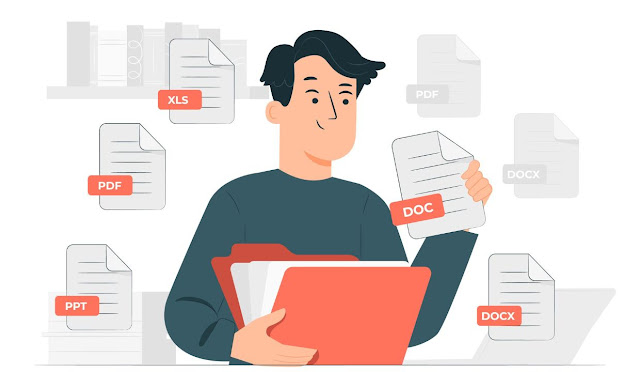Regulations on foreigners owning real estate in Vietnam are regulated in Civil Code 2015, Law on Land 2013, Law on Housing 2014, Decree no. 99/2015/ND- CP on guidelines the Law on Housing and related documents.
Thứ Năm, 30 tháng 3, 2023
How Foreigners Could Buy Real Estate in Vietnam?
Thứ Hai, 27 tháng 3, 2023
How to Obtain Construction Practicing Licenses in Vietnam?
The Construction Practicing License (practicing license) shall be issued to any Vietnamese citizens, overseas Vietnamese or foreigners who legally carry out construction activities in Vietnam in order to hold certain positions or operate their own construction business as prescribed in the amended Law on Construction 2020.
Temporary Residence Card in Vietnam
If a foreigner have been sponsored work permit in Vietnam to work or he/she decides to set up a company in Vietnam, he/she could be granted temporary residence card to live in Vietnam instead of applying and re-newing business or travel visas every three months.
Chủ Nhật, 26 tháng 3, 2023
What Are Rights and Obligations of Foreigners Owning Properties in Vietnam?
According to the current Vietnamese law, the ownership of houses in Vietnam by foreigners has changed significantly towards more openness. However, home ownership of foreigners and Vietnamese citizens are still different.
Digitalizing Vietnam Supporting Industry Database
On June 19, the Department of Industry (Vietnam Ministry of Industry and Trade) collaborated with the International Financial Corporation (IFC) of the World Bank Group, with funding from the Australian Department of Foreign Affairs and Trade (DFAT) and the Swiss Federal Economic Office (SECO) organized the “Opening Ceremony of the Database System of Vietnam’s processing, manufacturing and supporting industries” and put the Supporting Industry Portal into operation.
Thứ Tư, 22 tháng 3, 2023
How Mediation and Labor Arbitration Councils Work in Settlement of Labor Disputes?
During and after the Covid-19 pandemic, the financial health of enterprises have been negatively impacted leading to management’s decision to reduce cost through termination of labour contract with employee. The illegal termination of labour contract could lead to disputes between employer and employee which sometime would cost the employer more than it gains. It is important for the employer to engage with labour lawyers to consult before taking the decision to consider factors that would involve. After disputes arise, mediator or labour arbitration councils could be used for resolving disputes.
Thứ Hai, 20 tháng 3, 2023
What is Agreed Matrimonial Property Regime of Spouses Under Vietnam Laws?
Husband and wife have the right to choose to apply the statutory or agreed property regime. Basic contents of an agreement on the matrimonial property regime (prenuptial agreement) includes: (i) Property determined as common property and separate property of the husband and wife;(ii) Rights and obligations of the husband and wife toward common property, separate property and related transactions; property to meet the family’s essential needs;(iii) Conditions, procedures and principles of property division upon termination of the property regime;(iv) Other related contents.
- General principles of the matrimonial property regime: (i) Husband and wife have equal rights and obligations in the creation, possession, use and disposition of their common property without discrimination between housework labor and income-generating labor; (ii) Husband and wife have the obligation to ensure conditions for meeting their family’s essential needs.; (iii) When the performance of property rights and obligations of husband and wife infringes upon lawful rights and interests of the wife, husband, their family or other persons, compensation shall be paid.
- Rights and obligations of husband and wife to meet their family’s essential needs: (i) Husband and wife have the right and obligation to conduct transactions to meet their family’s essential needs; (ii) In case husband and wife have no common property or their common property is not enough to meet their family’s essential needs, they shall contribute their separate property according to their financial capacity.
- Transactions related to the home being the sole domicile of husband and wife and transactions with third parties in good faith related to bank accounts, securities accounts and other movable assets which registration for ownership and use is not required according to regulation of law.
How to Send Vietnamese Workers Working Abroad Under Contracts?
Decree No. 38/2020/ND-CP detailing the implementation of a number of articles of the law on Vietnamese workers working abroad under contracts has been signed by the Government on April 3, 2020 taking effect from May 20, 2020.
Chủ Nhật, 19 tháng 3, 2023
Marriage and Divorce in Vietnam
Vietnam family laws covers all legal matters concerning marriages and divorces, including marriage registration procedures, and divorce procedures, matters concerning separate or joint ownership assets and property, child custody, child support, and dispute on related matters.
Thứ Năm, 16 tháng 3, 2023
How to Register Mobile Application in E-commerce in Vietnam?
The service conducted via mobile applications is no longer a trend, but actually it has become an essential tool for any business that wish to grow and compete in the marketplace.
Thứ Tư, 15 tháng 3, 2023
Vietnam Sets to Develop E-commerce and Target 55% of the Population to Shop Online
On May 15, 2020, the Prime Minister issued Decision No. 645/QD-TTg approving the National Master Plan on e-commerce development in the 2021-2025 period aiming to develop e-commerce business area through changing in policy, creating favourable environment, increasing government spending, and attracting investors participating and setting up business in developing e-commerce in Vietnam to transform the economy toward industry 4.0.
Thứ Hai, 13 tháng 3, 2023
Cooperation between Vietnam and Japan After the Covid Epidemic
On May 15, 2020, the Minister of Planning and Investment met Ambassador Mr. Yamada Takio (Japan) on the occasion of starting his working term in Vietnam. The parties spent time welcoming and sharing a number of problems that need to be resolved to promote investment activities between the two countries in the context of the Covid-19 epidemic, including promoting public investment, promoting investment in the private sector, attracting investors to set up company, factory and implement investment into export processing zones in Vietnam.
Benefits of Investors in Setting up a Business in Da Nang
Chủ Nhật, 12 tháng 3, 2023
Why Da Nang is a Place for Setting up Business
Da Nang has been creating flexible policies, good environments attracting foreign investors setting up company, building factory, and developing service business.
Thứ Tư, 8 tháng 3, 2023
How To Determine The Child Custody in a Divorce?
Upon divorce, in addition to dispute over property division, child custody dispute is also popular. How to determine the child custody in a divorce depends on many factors and the parties are suggested to consult with dispute lawyers in Vietnam in civil matters. The following does not try to give legal advice but a brief opinions on the matters of concern for reference.
Thứ Hai, 6 tháng 3, 2023
How to Set up Foreign Owned Company in IT and Computer Related Service?
Information technology and computer related service have played an extremely important role in life as well as in business activities on global scale. The industrial revolution 4.0 has comprised of many technologies and IT and computer service take a big part of such. The laws of Vietnam and the international commitments to which Vietnam is a party have no restrictions on foreign investors in terms of both the form of investment and the proportion of capital contribution in business in this field. Further, Vietnam prioritizes and encourages development in the field of IT and computer services which is considered attracting high level of intelligence and green business. The investors have grown confidence in Vietnam’s increasingly improved legal systems to protect the Intellectual Property rights in trademark and copyright to protect the company and individuals to exploit economic benefits in IT and computer related service areas.





















.jpg)





.jpg)
